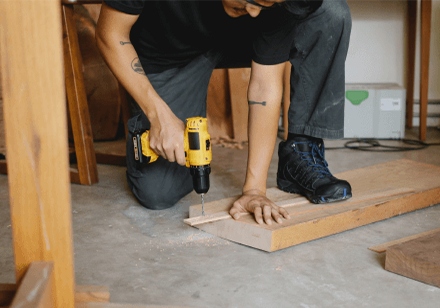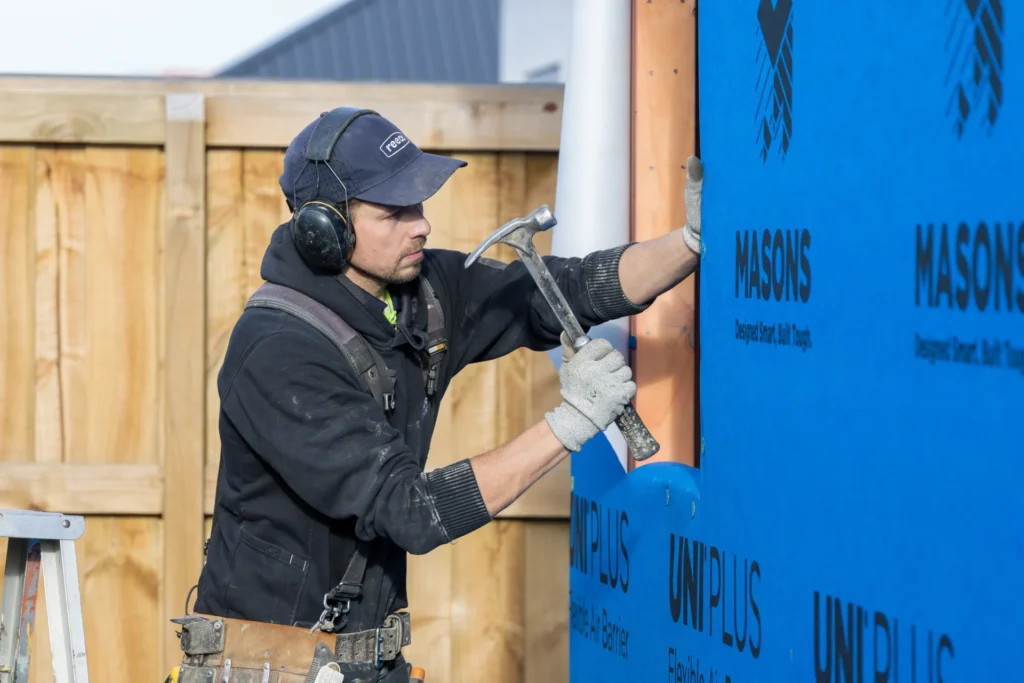Welcome to your go-to guide on new build homes in NZ, whether you’re a first-home buyer, investor, or simply exploring better living options, this post covers everything you need to know before you commit. With rising demand for low-maintenance, energy-efficient homes and more developers offering flexible packages across the country, now’s a smart time to understand the pros, the process, and the potential pitfalls. From choosing between turnkey and house-and-land deals to navigating timelines, contracts, and locations, we’ll walk you through it all, so you can make informed decisions with confidence.
New build homes in NZ are newly constructed properties that have never been lived in before. They include turnkey homes, house and land packages, or off-plan builds. These homes offer modern features, better energy efficiency, and lower maintenance costs, making them a popular choice for first-home buyers and investors across New Zealand.
Table of Contents
What Are New Build Homes?
New build homes are residential properties that have been recently constructed and have never been lived in before. These homes are built to meet current building codes, often come with modern layouts, and include up-to-date features like double glazing, insulation, and energy-efficient appliances. In New Zealand, new builds are becoming a preferred option for many buyers due to their long-term savings, customization potential, and lower maintenance needs.
There are three main types of new build homes in NZ that buyers should know: turnkey homes, off-plan builds, and house and land packages.
- Turnkey homes NZ refer to properties that are fully completed by the builder, including landscaping and driveways. Buyers simply “turn the key” and move in, making this option ideal for people who want a hassle-free process. You pay a deposit upfront and the balance when the home is finished, which gives financial certainty.
- Off-plan homes are properties you commit to buying before they are built. You usually choose a layout or design from a developer’s plan. This gives some flexibility in features and finishes, but the build can take several months, and changes to the market or developer delays can affect the final result.
- House and land packages involve purchasing a section of land and then choosing a home design to be built on it. These packages offer more customization than turnkey options but require more involvement in the process. You’ll also be responsible for progress payments as construction moves forward.
When comparing new builds to existing homes, there are a few key differences. New builds offer better energy efficiency, which reduces power bills, and require minimal upkeep for the first few years. They also come with warranties, like the 10-year Master Build Guarantee, offering peace of mind. On the other hand, existing homes are often located in more established neighborhoods and can offer larger sections, but they might need costly renovations or upgrades.
In terms of price, as of mid-2025, new build homes in NZ typically start at around $750,000 in main urban centers like Auckland and Wellington. In contrast, existing homes may be slightly cheaper upfront, averaging around $700,000, but can cost more over time due to maintenance, compliance upgrades, or insulation retrofitting.
Whether you’re drawn to the simplicity of a turnkey home, the flexibility of a house and land package, or the investment opportunity of buying off-plan, understanding the types of new build homes available in New Zealand will help you make a smart, informed decision.
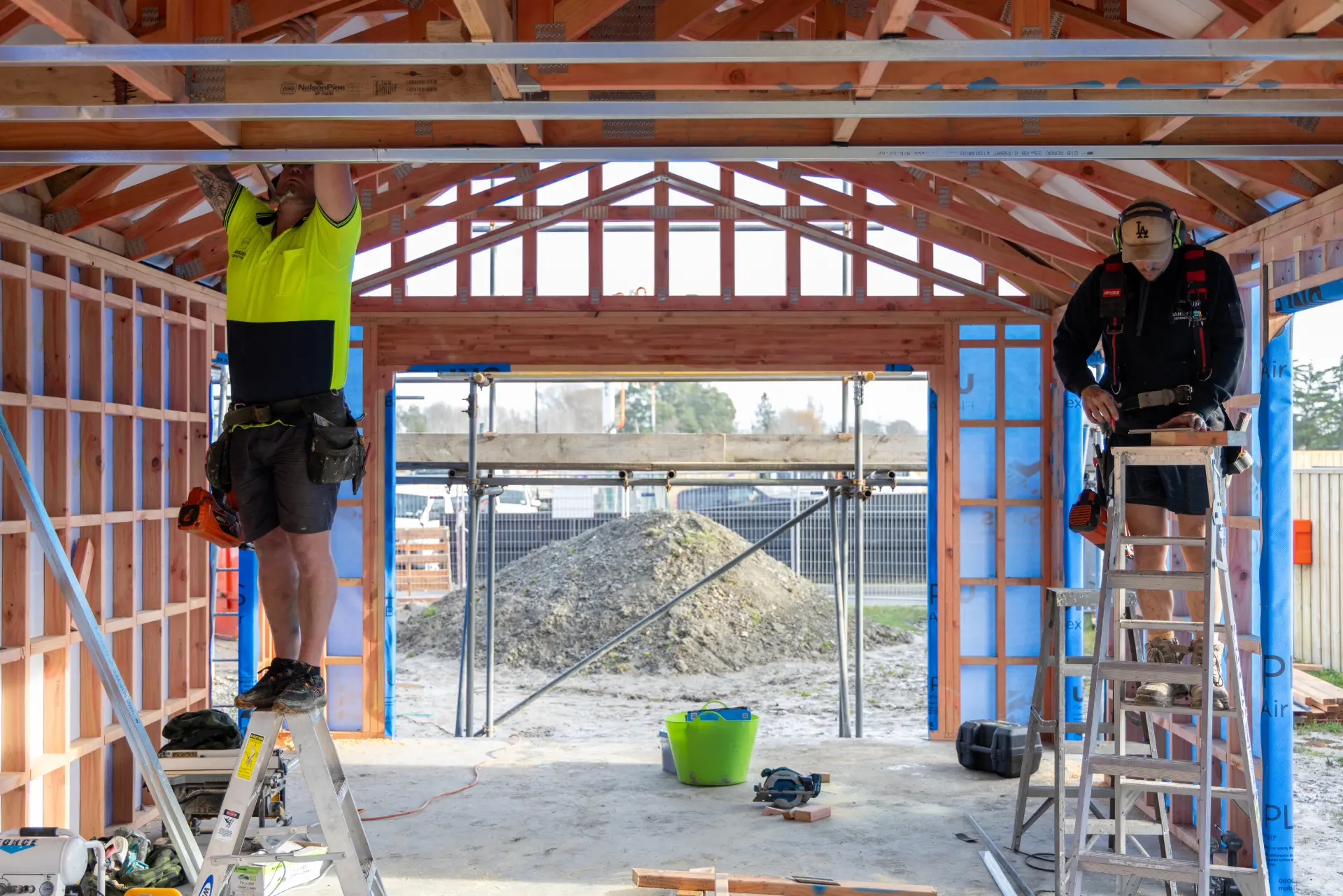
Why Buy A New Build In NZ?
New build homes in NZ offer practical advantages that make them appealing to a wide range of buyers. Whether you’re a first-home buyer, investor, or downsizer, choosing a newly built property can save you time, reduce future costs, and give you more control over the final outcome. Here’s why many Kiwis are turning to new build options when entering or re-entering the property market.
Lower Maintenance And Modern Features
One of the most common reasons buyers choose new builds is the low maintenance. Unlike older homes, which may require upgrades to plumbing, roofing, or insulation, new homes are built with modern materials and up-to-date systems. You won’t need to worry about repairs or replacements for several years, which means fewer unexpected costs. Features like double-glazed windows, new appliances, and open-plan living are standard in many new homes, offering comfort and functionality from day one.
Customization Options
New build homes often give buyers the chance to choose design elements before construction is complete. Depending on the developer or builder, you may be able to pick flooring, kitchen finishes, paint colours, and even layout tweaks. This level of customization is especially helpful if you’re looking for a home that suits your lifestyle without the need for renovations later on. Having input in the process also creates a stronger sense of ownership and satisfaction once you move in.
Energy Efficiency And Building Code Compliance
Modern building standards in New Zealand focus heavily on energy efficiency, ventilation, and safety. New builds must comply with the latest building codes, which are designed to create healthier, warmer homes. Features such as better insulation, heat pumps, efficient lighting, and smart ventilation systems help reduce energy bills and improve year-round comfort. For health-conscious or environmentally aware buyers, this can be a key selling point.
Government Grants Or Tax Benefits
New build incentives in NZ can make homeownership more accessible. For eligible buyers, the First Home Grant offers up to $10,000 toward the purchase of a new build, which can make a big difference in covering deposit costs. New builds may also qualify for different loan-to-value ratios (LVRs) requirements, meaning you could need a smaller deposit than you would for an existing property. These financial benefits are especially attractive for first-home buyers trying to enter a competitive market.
The benefits of new build homes in NZ go beyond just a fresh coat of paint. From reduced maintenance to energy savings and potential financial support, they offer value that many existing homes can’t match. If you’re looking for a smart, future-ready option, a new build could be the right fit.
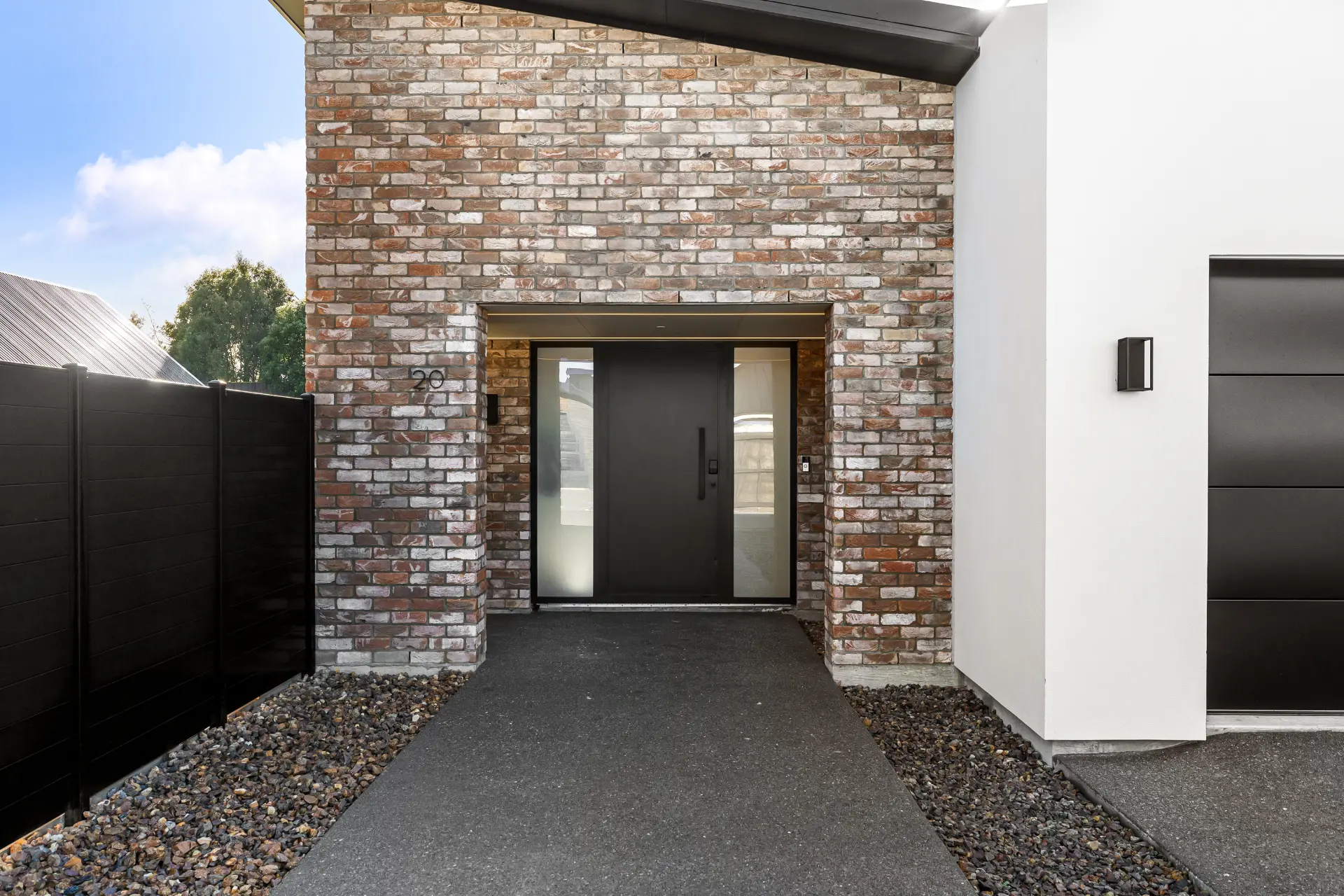
What To Consider Before Buying Or Building
Buying a new build in NZ is a major decision, and it’s not just about picking a floor plan or choosing tiles. Before you commit, there are important factors to think through that can affect your budget, timeline, and overall satisfaction with the home. Here’s a detailed look at the key things to consider so you can avoid setbacks and make confident, informed choices.
Location And Land Availability
The location you choose plays a huge role in the long-term value and livability of your home. Start by asking yourself what matters most: proximity to work, good schools, public transport, or future development in the area? Some regions in New Zealand, especially near major cities like Auckland or Christchurch, offer limited land for new builds. This can drive up prices or force you to compromise on location. Check with local councils for zoning rules and development plans. Also, think about whether the section is flat or sloped, as this can impact building costs and design options.
Timeline And Budget
New builds often take longer than expected, especially if you’re building from scratch. Weather delays, material shortages, and council approvals can stretch timelines. Make sure you understand the estimated build time from your developer and ask what factors might affect it. On the budget side, don’t just account for the quoted build price. Include site preparation, landscaping, consents, connection fees, and upgrades. It’s smart to set aside a buffer, at least 10%, for unexpected costs. A detailed budget will help you avoid financial stress halfway through the build.
Builder Reputation And Reviews
Not all builders are created equal. Some deliver on time with excellent service, while others cut corners or go over budget. Do your homework. Look for reviews from recent clients, visit previous projects, and ask direct questions about their process. Are they part of a professional body like the Master Builders Association? Do they offer a building guarantee or warranty? A good builder will be transparent about costs, timelines, and what’s included in the contract. Don’t choose on price alone, reputation matters more in the long run.
Legal And Finance Considerations
New build contracts are different from buying an existing home, and you’ll need legal advice before signing anything. Check the title to confirm what you’re buying. Is it freehold, leasehold, or unit title? Each has different obligations. Understand the finance side as well. Banks often apply different lending rules for new builds in NZ. For example, you may face lower deposit requirements with a turnkey home compared to a build-from-scratch project. Learn about LVR (Loan-to-Value Ratio) restrictions and what type of loan applies to your situation. Also, clarify whether your contract is fixed-price or cost-plus. Fixed-price contracts offer more certainty, while cost-plus can expose you to unexpected charges.
When going through your new build checklist in NZ, keeping these four areas in focus can save you time, money, and stress. Buying a new build isn’t just a purchase, it’s a process. And the better prepared you are, the smoother it will go.

Step-By-Step Guide To New Build Homes In NZ
Buying a new build home in NZ is a big decision, and understanding the process can save you time, money, and stress. Whether you’re buying your first home or adding to your property portfolio, knowing what to expect helps you stay in control from day one. Here’s a clear, step-by-step guide to help you through the entire journey.
Research And Planning
Start by identifying what you want in a home. Are you looking for a house and land package or a turnkey property? Consider your ideal location, budget, and must-have features. Research different developers or builders who offer new builds in areas that suit your lifestyle or investment goals. Visit show homes, compare floor plans, and read reviews to get a feel for build quality and customer experience. A clear plan at this stage helps you avoid rushed decisions later on.
Finance Pre-Approval
Before you commit to anything, talk to your bank or mortgage broker about getting pre-approved for a home loan. This gives you a clear idea of how much you can borrow and what your budget should be. It also shows builders and agents that you’re a serious buyer. Keep in mind that some lenders have specific rules for new builds, especially when it comes to deposits and staged payments.
Choosing A Builder Or Developer
Not all builders are equal. Look for registered, experienced builders with a solid track record. Ask for references and check if they offer guarantees such as the Master Build Guarantee. Take time to compare contracts, inclusions, and timeframes. Make sure you’re dealing with someone who communicates well and is upfront about pricing, materials, and timelines.
Reviewing The Contract
Once you’ve chosen your builder or developer, you’ll receive a contract outlining all the terms of the build. Go through this carefully. It should include the total cost, build timeline, payment schedule, and what’s included (and not included) in the package. It’s smart to get a lawyer to review the contract, especially to check clauses related to delays, price changes, and workmanship guarantees.
Construction Phase
Once the contract is signed and the deposit is paid, the build begins. The construction process is usually completed in stages, from site preparation and foundation laying to framing, roofing, and internal finishes. During this time, your builder may provide progress updates and site visits. You may also need to make decisions on final finishes, fittings, and layout tweaks. Be prepared for some delays due to weather or supply issues, but make sure your builder keeps you informed.
Final Inspection And Handover
Before you take possession, you’ll go through a final inspection or “walkthrough” with the builder. This is your chance to check for any defects, unfinished work, or issues that need fixing. Once everything meets the agreed standards, the property is handed over to you. At this stage, the Code Compliance Certificate (CCC) should be issued, confirming the home has been built to New Zealand’s building standards.
Understanding Key Jargon
- CCC (Code Compliance Certificate): A document from the local council confirming the house was built to approved plans and complies with the building code.
- LIM (Land Information Memorandum): A report from the local council showing important details about the land, such as zoning, flood risk, or consent history.
- Code of Compliance: Often used interchangeably with CCC, it confirms the house meets NZ building standards and is safe to live in.
Knowing these terms helps you navigate the process with confidence and avoid misunderstandings along the way.
By following this step-by-step process, you can move forward with your new build home in NZ knowing what to expect and how to protect your investment. Whether you’re after a stylish family home or a long-term rental, understanding the timeline and key stages will help you make smart, informed decisions that align with your goals.
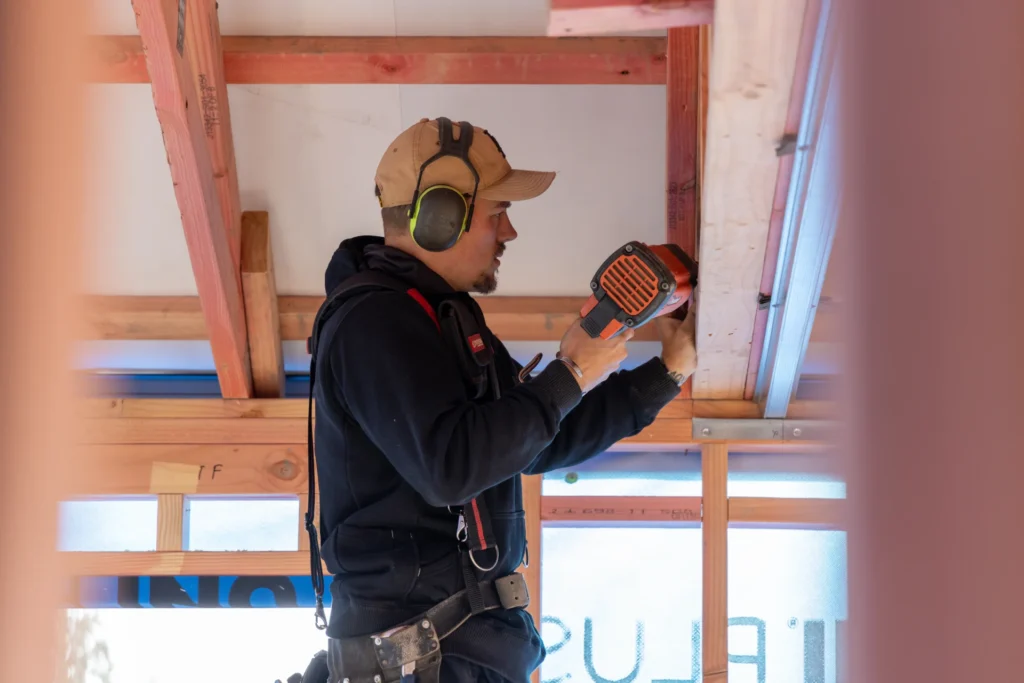
Pitfalls To Avoid When Buying Or Building A New Build Home In NZ
Building or buying a new build home in NZ comes with plenty of benefits, but there are also risks you need to avoid. Many first-time buyers walk into the process without understanding the fine print, leading to unexpected costs, delays, or even legal disputes. Here are some of the most common new build issues in NZ and how you can protect yourself at each step.
Poor Contract Terms
One of the biggest mistakes buyers make is signing a contract they don’t fully understand. Many contracts for new builds are filled with legal terms, hidden clauses, or unclear expectations about who covers certain costs. If you’re not careful, you could end up responsible for expenses that should be covered by the builder. Always have a lawyer review your contract before signing. Ask about fixed-price clauses, variations, warranties, and penalty terms for delays. A strong, clear contract is your first layer of protection.
Budget Blowouts Or Cost Overruns
It’s common to hear stories of builds running over budget in New Zealand. Sometimes, this happens due to fluctuating material costs, labour shortages, or poor planning. But often, the issue lies in underestimating total project costs or failing to include extras like landscaping, driveways, or council fees. To avoid budget problems, ask for a fully itemised quote from your builder. Understand exactly what’s included and what’s not. Stick with fixed-price contracts when possible, and always have a contingency fund of at least 10–15% of your budget.
Delayed Timelines
Construction delays are a frequent issue, especially with supply chain disruptions and weather-related setbacks. While some delays are unavoidable, others happen due to poor project management or overpromising from the builder. Before you agree to any timelines, ask for a realistic build schedule. Check if your contract includes a penalty clause for late delivery. Communicate with your builder regularly to stay updated on progress and address issues early.
Incomplete Or Faulty Finishes
Just because a home is brand new doesn’t mean it’s problem-free. Some new builds are handed over with incomplete work, rushed finishes, or defects that aren’t immediately visible. Always schedule a thorough pre-handover inspection with an independent building inspector. Look for issues like poor tiling, paint runs, uneven flooring, or improperly installed fixtures. A good builder should be willing to fix all defects before final settlement.
How To Vet Your Builder
Choosing the right builder is one of the most important decisions you’ll make. Start by checking if they’re licensed under the Licensed Building Practitioners (LBP) scheme. Look for reviews from past clients, check how long they’ve been in business, and ask to see examples of completed homes. Another smart move is to work with builders who offer a Master Build Guarantee. This gives you added protection against loss of deposit, structural issues, or unfinished work due to insolvency. A reputable builder will be transparent, communicative, and willing to answer every question you have.
By knowing the common new build issues in NZ and taking the right steps early, you can avoid most of the problems buyers face. Stay informed, ask the right questions, and never rush the process. It’s your home, you deserve peace of mind from the first conversation to the final handover.
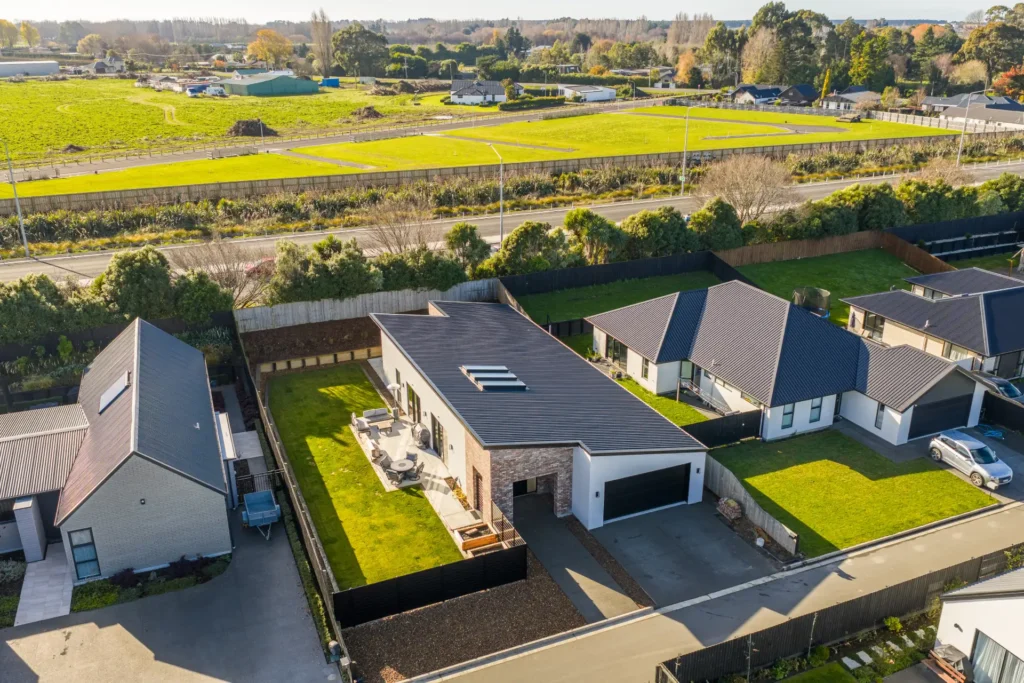
Popular New Build Locations In NZ
When looking for a new build home in New Zealand, choosing the right location is just as important as the home itself. Each region offers different lifestyle benefits, pricing, and long-term value. Whether you’re after urban convenience or a quieter suburban setting, there’s a growing number of new build opportunities across the country. Below are some of the best places to buy new build homes in NZ, based on popularity, affordability, and growth potential.
Auckland
Auckland remains one of the most in-demand areas for new builds, thanks to its job opportunities, public transport, and schooling options. While central suburbs are pricey, areas like West Auckland, South Auckland, and parts of the North Shore have seen a surge in affordable new build developments. Suburbs such as Hobsonville Point, Flat Bush, and Pukekohe are especially popular among first-home buyers and young families. Median prices for new builds in Auckland often range from $800,000 to over $1.2 million, depending on the size and location.
Hamilton
Hamilton is one of the fastest-growing cities in the country. Its location in the Waikato region makes it a key hub between Auckland and other regions in the North Island. New suburbs like Rototuna, Peacocke, and Flagstaff are filled with house and land packages that attract buyers looking for affordability and growth. Many new build homes in Hamilton are priced between $700,000 and $950,000, making it a strong choice for families and investors seeking better value than Auckland.
Christchurch
Christchurch offers some of the most affordable new builds in NZ’s major cities. With large-scale urban development following the 2011 earthquake, the city has transformed into a modern, well-planned urban center. Suburbs such as Halswell, Rolleston, and Prestons are known for family-friendly living and well-built homes. New build homes in Christchurch typically range from $600,000 to $850,000, making it ideal for first-time buyers or those wanting to upgrade at a reasonable cost.
Wellington
Wellington’s compact layout and high demand mean fewer new build opportunities in the central city. However, surrounding areas like Upper Hutt, Lower Hutt, and Porirua are seeing steady development. These suburbs offer access to the capital while providing newer housing options and more space. Prices for new builds in the Wellington region usually start around $800,000 and can go above $1 million, depending on proximity to the city and land availability.
Tauranga
Tauranga combines coastal living with a growing economy, making it one of the best places to buy new build homes in NZ. New developments are popping up in suburbs like Pāpāmoa, Te Puke, and The Lakes, offering lifestyle-focused homes near beaches and schools. Tauranga’s new build prices are climbing, with most properties now ranging between $750,000 and $1 million, driven by increased demand from retirees, remote workers, and young families.
Up-And-Coming Suburbs And Regions
Beyond the main cities, other areas like Palmerston North, Napier, Queenstown, and Timaru are gaining attention. These regions often provide more affordable new builds and smaller communities while still offering solid infrastructure and job growth. As remote work becomes more common, more buyers are willing to settle outside of major cities, making these areas worth watching.
Whether you’re after city access, lifestyle appeal, or affordability, there are many options for new build homes across New Zealand. Choosing the right location depends on your budget, future plans, and what matters most to your lifestyle.
If you’re searching for affordable new builds in NZ or want to know the best places to invest, staying updated with local trends and development plans is key.
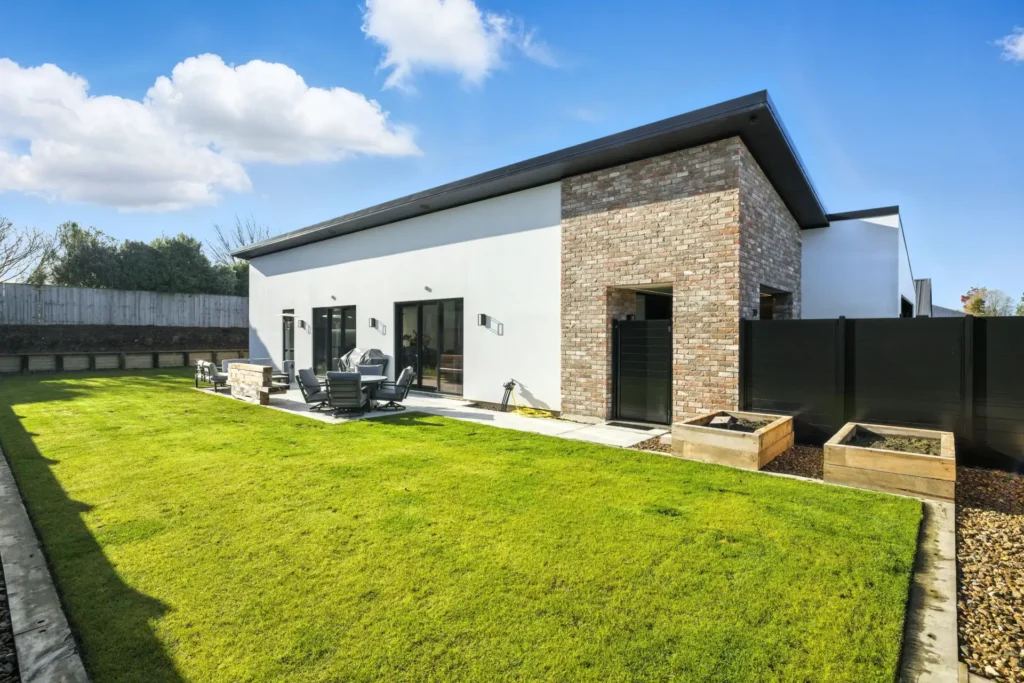
Should You Buy Or Build? (Comparison Table)
If you’re exploring new build homes in NZ, you’re likely weighing one key decision: Should you buy a completed new build or build a home from scratch? Both options come with pros and cons. The right choice depends on your goals, timeline, and how involved you want to be in the process.
The table below compares both options side-by-side to help you decide.
| Factor | Buying A New Build (Turnkey/Off-Plan) | Building A Home From Scratch |
| Timeline | Faster, can move in sooner (often within months) | Longer, 6 to 18 months, depending on scope |
| Customisation | Limited, you get what the developer offers | Full control, design layout, materials, finishes |
| Cost Predictability | More predictable, fixed pricing in most cases | Can vary, subject to material, labour, and delays |
| Process Complexity | Simple, you buy and wait | More involved, requires decisions and approvals |
| Financing | Easier, standard home loan options available | Construction loans may be needed |
| Location Options | Often tied to new developments/suburbs | Can build where you own or buy land |
| Ideal For | First-home buyers, investors, downsizers | Families with specific needs, long-term planners |
| Risk Level | Lower, less chance of delays or budget overruns | Higher, weather, council, and supply chain issues |
| Government Incentives | Eligible for First Home Grant and Kāinga Ora options | Also eligible if criteria are met |
| Satisfaction | Convenient, but less personal | Rewarding, tailored to your lifestyle |
Who Should Choose What?
- Buy a new build home if you want less hassle, a quicker move-in, and a more predictable budget. This is great for first-home buyers and property investors.
- Build a new home from scratch if you want complete control, custom features, and have the time to manage a more complex process. Best for families planning long-term or buyers with specific needs.
When deciding whether to build or buy a home in NZ, always consider your lifestyle, financial flexibility, and how much involvement you want in the building journey. One option isn’t better than the other, it just depends on what suits you.
Thinking about a new build home in NZ? Explore your options, get expert advice, and start your journey with a trusted team. Visit us to learn more
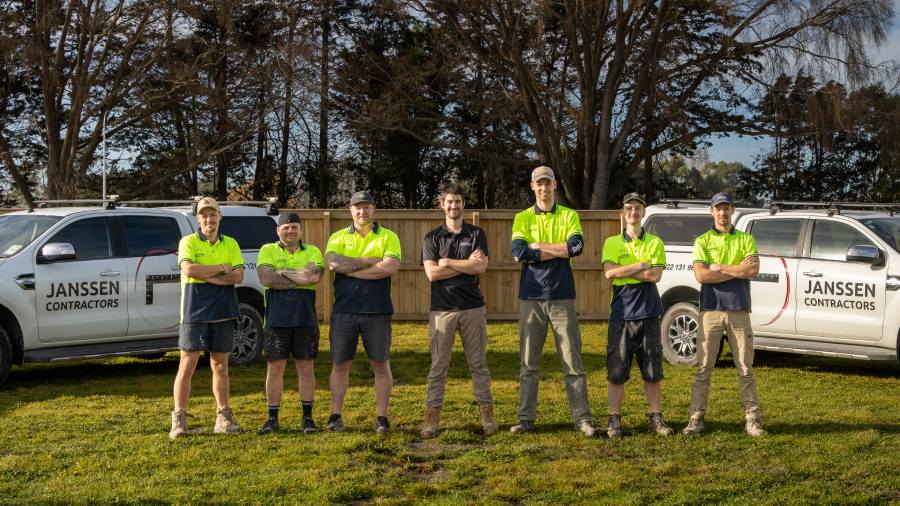
FAQs: About New Build Homes In NZ
What is considered a new build home in New Zealand?
A new build home is a property that has been newly constructed and has not been lived in before. This includes turnkey homes, house and land packages, and off-plan builds.
What are the benefits of buying a new build home?
New builds offer lower maintenance, modern designs, better energy efficiency, and compliance with current building codes. They may also qualify for grants or tax benefits.
What is a turnkey home?
A turnkey home is a fully completed house where everything is ready for you to move in—landscaping, driveway, appliances, and fittings included.
How does a house and land package work?
You purchase both the land and a pre-designed house from the same developer. Construction begins after contracts are signed, and you typically make staged payments.
Are new build homes more expensive than existing homes?
New builds can be slightly more expensive upfront but often save you money long-term through energy efficiency, fewer repairs, and lower maintenance.
Can I use my KiwiSaver for a new build home?
Yes, if you’re a first-home buyer, you may be eligible to use your KiwiSaver and apply for the First Home Grant to help cover the purchase of a new build.
How long does it take to build a new home in NZ?
The timeline varies but generally takes 6 to 12 months, depending on the builder, weather, permits, and availability of materials and labor.
What should I check before signing a building contract?
Review the total cost, timelines, guarantees, builder credentials, and whether it’s a fixed-price or cost-plus contract. Always seek legal advice first.
Are there any risks with buying a new build?
Delays, budget blowouts, and construction defects can occur. Choosing a reputable builder and understanding your contract can help minimize these risks.
Where are the most popular areas for new builds in NZ?
Auckland, Hamilton, Tauranga, Christchurch, and Wellington are popular, with many new developments in suburbs and satellite towns offering better affordability.
Conclusion
New build homes in NZ offer a practical path for buyers seeking modern design, lower maintenance, and energy efficiency in a competitive property market. Whether you’re considering a turnkey solution or a house-and-land package, the benefits of building new, such as customization, compliance with current building codes, and potential financial support, make it a smart, future-ready choice. Take the time to research locations, review builder credentials, and understand your financing options so you can move forward with confidence. If you still have questions or want to share your home-building experience, we’d love to hear from you. Ready to explore your options? Talk to a builder or financial advisor today.


